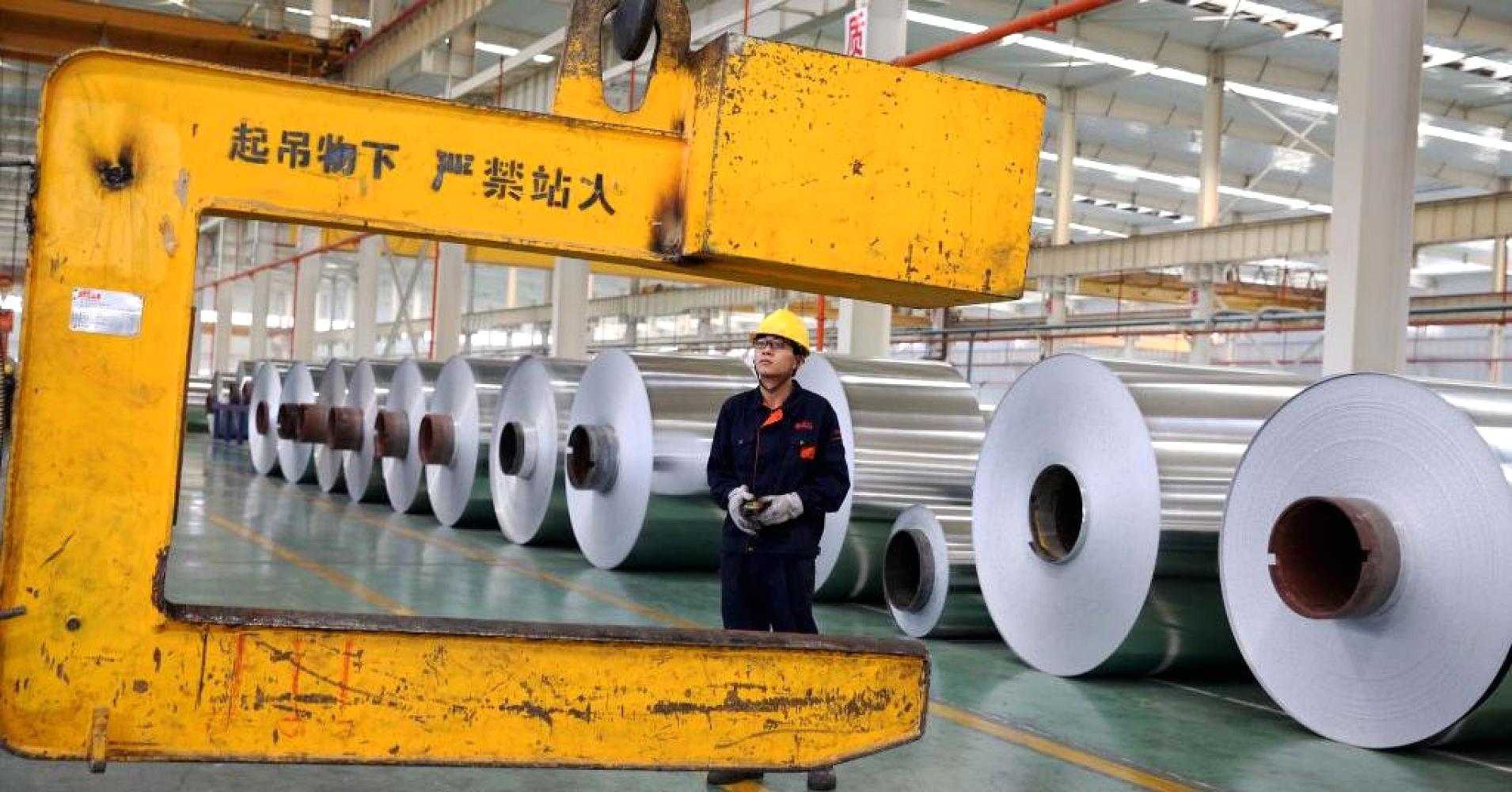
- CNBC reports: "China has expressed "strong dissatisfaction" with the United States imposing anti-dumping and countervailing duties on Chinese aluminum foil, the Ministry of Commerce (MOFCOM) said on Wednesday. "The U.S. has disregarded the WTO rules and seriously damaged the interests of China's aluminum foil exporters. China is strongly dissatisfied with this," Wang Hejun, the head of MOFCOM's Trade Remedy and Investigation Bureau, said in a statement... China will take necessary measures to protect its legal rights and interests in the U.S. wrongdoing, Wang added. U.S. President Donald Trump is due to decide soon whether to impose much broader duties on steel and aluminum imports under a national security investigation amid mounting trade friction with China."
- The New York Times reports: "There was always something different about China's version of authoritarianism. For decades, as other regimes collapsed or curdled into dysfunctional pretend democracies, China's held strong, even prospered. Yes, China's Communist Party has been vigorous in suppressing dissent and crushing potential challenges. But some argue that it has survived in part by developing unusually strong institutions, bound by strict rules and norms. Two of the most important have been collective leadership — rule by consensus rather than strongman — and term limits. When the Communist Party announced this week that it would end presidential term limits, allowing Xi Jinping to hold office indefinitely, it shattered those norms. It may also have accelerated what many scholars believe is China's collision course with the forces of history it has so long managed to evade... Mr. Xi, by shifting toward a strongman style of rule, is doubling down on the idea that China is different and can refashion an authoritarianism for this age.If he succeeds, he will not only have secured his own future and extended the future of China's Communist Party, he may also establish a new model for authoritarianism to thrive worldwide."
Los Angeles Times reports: "The bustling Myeongdong neighborhood has long been this city's most-visited tourist spot... But over the last year even the street vendors have noticed a steep decline in sales... The reason: South Korea's new missile defense system, known as THAAD. China objects to it and has been flexing its economic muscle in protest, carrying out an aggressive campaign of economic retaliation that includes sending fewer tourists. In 2017, just over 4 million Chinese visited South Korea, down from roughly 8 million a year earlier after several years of steady growth... The Terminal High Altitude Area Defense was installed last spring on a former golf course in the country's south by South Korea's most important ally, the United States... China says the system's radar encroaches on its sovereignty and threatens its national security. South Korean President Moon Jae-in has tried to patch things up, visiting Beijing in December and agreeing to not install any new missile systems or link the current one with the United States' overall defense network in Asia. The meeting seemed to help, but merchants say the effects of the retaliation linger."
- 2018-02-27 China's new economic guru is trying to stop a trade war
- 2018-02-26 The 'Quad' Is Not A Rival To China's Belt And Road Initiative -- It's A Precursor
- 2018-02-25 The US risks making a strategic blunder over China
- 2018-02-23 China's big conglomerates are no longer buying up the world
- 2018-02-22 Top US Treasury official slams China's 'non-market behavior'
- 2018-02-21 A massive US farming industry fears China trade trouble
- 2018-02-20 China would not be the only country hurt by US steel tariffs
- 2018-02-14 The director of the FBI says the whole of Chinese society is a threat to the US
- 2018-02-13 As China Marches Forward on A.I., the White House Is Silent
- 2018-02-12 Chinese stealth fighters are combat-ready, Beijing says
- The New York Times In Taiwan, Young Protesters and Ex-Presidents Chafe Against China
- Reuters China has plan to build nuclear-powered aircraft carrier
- CNBC China expresses 'strong dissatisfaction' with US duties on Chinese aluminum foil
- Los Angeles Times Upset over a U.S. missile defense system, China hits South Korea where it hurts — in the wallet
- CNN iQiyi, the Netflix of China, is going public in the US
- CNBC Apple's Chinese iCloud is one battle in 'a bigger tech trade war'
- CNN India is growing faster than China
- Fortune China Is Said to be Cracking Down on a Cryptocurrency Loophole
- CNBC Chinese manufacturing activity hits 19-month low in February
- Reuters China's military flexes muscles for domestic objective: more funding
- Financial Times China's annual coal consumption rises for first time in 3 years
- Financial Times Is Chinese state behind Geely's Daimler swoop?
- The New York Times Xi Sets China on a Collision Course With History
- NPR China Plans To Abolish Term Limits For President Xi Jinping
- Bloomberg China's Yellow Brick Road
- The Australian Cold war: freeze on China ties
- Forbes China Needs A Win In Afghanistan To Keep Its Edge In Asian Trade
- The National Interest Should the Navy Fear China's 'Streetfighter' Ships?
- Forbes China's Gaming Companies No Longer Focusing On Male-Only Players
- NBC News Analysis: Xi Jinping returns China to era of one-man rule
